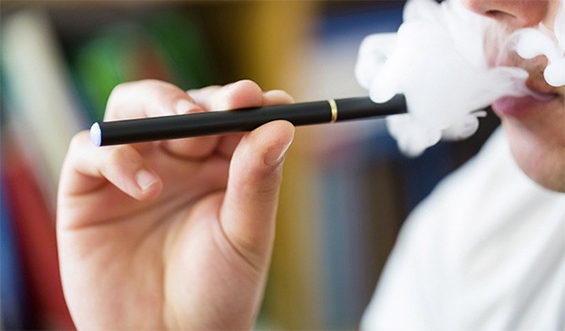
Even teenagers are calling out electronic cigarette companies to tighten up their rules. Over three-fourths of teens and adults said by way of the C.S. Mott Children’s Hospital National Poll on Children’s Health at the University of Michigan that e-cigarettes should be restricted in public places, be labeled with health warnings, and be taxed in the same way conventional cigarettes are taxed.
Eureka Alert!, a publication of the American Association for the Advancement of Science (AAAS), says the only states that do not restrict sales of e-cigarettes to minors are Pennsylvania and Michigan. The poll found that over 80% of parents and teens think that the use of the vaping devices by teens leads to the use of other tobacco items.
Matthew M. Davis, M.D., M.A.P.P., the director of the National Poll on Children’s Health and professor of pediatrics and internal medicine in the Child Health Evaluation and Research Unit of U-M’s C.S. Mott Children’s Hospital, said:
“Just as we are seeing declines in smoking of conventional cigarettes, there has been rapid growth in use of electronic cigarettes among youth. Our poll indicates that both parents and teens agree that e-cigarettes pose several concerns.”
Overall, according to Davis, there was overwhelming support for states taking e-cigarettes out of the reach of minors. The CDC has published data that shows the use of electronic cigarettes among middle and high school students has tripled from 2013 to 2014, and e-cigarette usage rates have surpassed the current use of every other tobacco product overall, including conventional cigarettes.
“Some people may be surprised that teenagers’ views are remarkably consistent with what parents think about e-cigarettes,” Davis says. “The strong level of agreement between parents and teens suggests that both groups are concerned about the health hazards of e-cigarettes.”
Over half of teens and parents think it is not difficult for minors to purchase e-cigarettes, and 71% of teens and 64% of parents are in support of banning flavored versions of them. Fourteen percent of parents and 9% of teens shared that they have tried or are using e-cigarettes, and 42% of teens said they knew someone who had used vaping products, writes Robert Preidt of Health Day.
Researchers have found that e-cigarettes are less dangerous than smoking traditional cigarettes, but vaping has not been around long enough to show what the long-term health repercussions might be, according to Michigan Public Radio’s Steve Carmody. It is also not known conclusively whether vaping will discourage or encourage young people to use tobacco products.
Greg Conley with the American Vapor Association, an industry lobbying group, says the results of the poll are based on a lack of understanding. He added that people are willing to support heavy-handed government regulations when they are confused.
In Michigan, restriction proposals on vaping have lost their vigor in the legislature. But some counties are making the move on their own, such as Ingham County, where vendors will be required to have a license and will prohibit sales to minors.
Governor Rick Snyder vetoed e-cigarette bills earlier this year because he believed they did not do enough to regulate the vaping industry.




